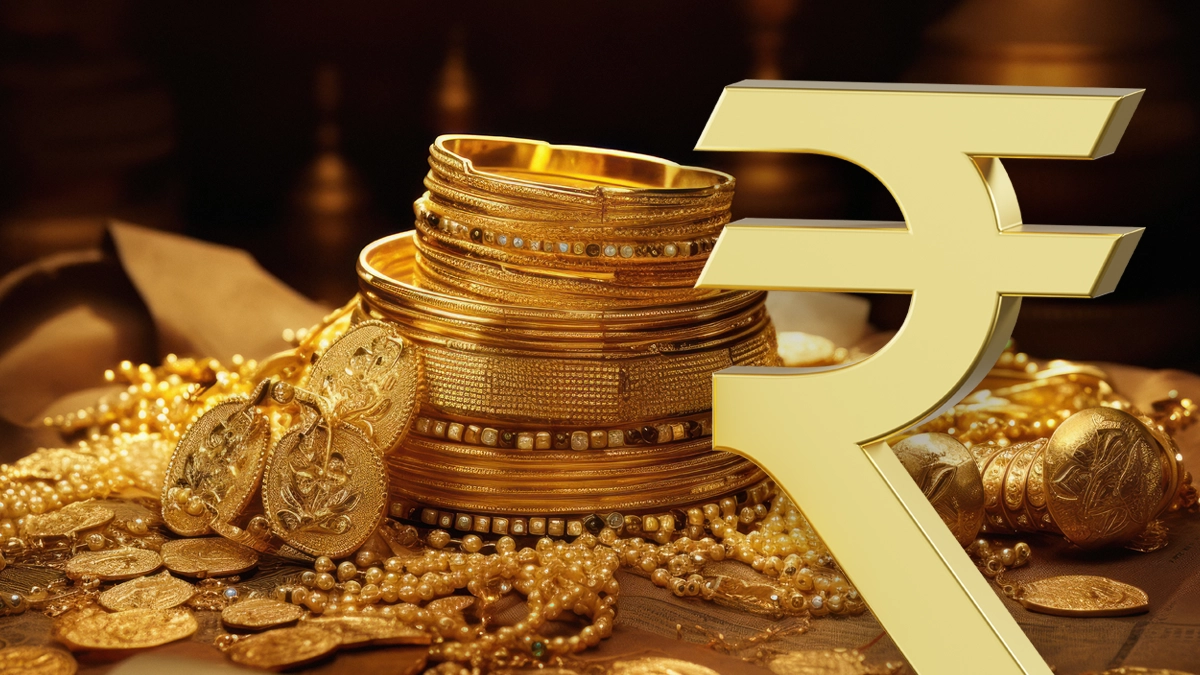When you buy gold, you’re not just investing in precious metal but you’re also putting your trust in its purity and value. Whether it’s for an upcoming wedding, a festive gift, or a long-term investment, you want to make sure the gold you purchase is genuine and worth its price. However, in a market full of shiny and sparkling jewelry, it is not easy to find out the purity of gold. This is where hallmarked gold comes into play. To know more about its meaning, significance and process to check, read the blog below.

What is Hallmarked Gold
Hallmarked gold refers to gold that has been tested and certified for its purity an authorized body. In simple terms, it confirms that the gold content in your jewelry matches what the seller claims. For example, if a ring is said to be 22 karats, the hallmark ensures that it contains 91.6% of pure gold.
A hallmarking includes confirming registration from Bureau of Indian Standards (BIS), the only agency in India who is allowed to operate the hallmarking scheme in India. Once the testing is done, the BIS issues a 6-digit alphabetic code which is known as the hallmarking unique identification number.
Significance of Hallmarked Gold in India
Here’s why hallmarked gold is important:
1. Consumer Protection
A hallmarked gold protects you from fraudulent practices. It acts as a legal assurance so that your gold meets the standard set by the BIS. Without hallmarking, sellers could pass off lower karat gold as a higher purity metal, leading you to overpay.
In fact, since June 2021, the government of India made hallmarking mandatory in a phased manner across several districts. This move aims to safeguard consumers like you and bring more transparency to the gold market.
2. Assurance of Quality and Purity
With hallmarked gold, you don’t have to take the seller’s word for it. You get a government-certified seal of purity. This is specifically important because even a small difference in karat value can significantly affect the price.
For instance, you plan to buy 10 grams of 22k gold. If it turns out to be just 20k, you will end up losing on both purity and value. Hallmarking ensures that you receive exactly what you’re paying for.
3. Better Resale and Loan Value
If you ever decide to resell your gold or use it as collateral for a loan, hallmarking gives you an edge. Buyers and financial institutions prefer hallmarked gold because they don’t have to second-guess its purity. Jewelers are also more likely to offer better buyback rates when you bring in hallmarked jewelry.
Similarly, banks and NBFCs offer high loan amounts against hallmarked gold since its value is easier to authenticate.
How to Check if Your Gold is Hallmarked
Before you make a purchase, take a moment to inspect the jewelry for hallmarking in the following ways:
- Look for BIS Logo – This is a triangular symbol with letters BIS inside. It’s your first sign of assurance.
- Check the Karat and Fineness – You should find markings like 22K916, 18K750, or 14K585. These indicate both karat age and purity in parts per thousand.
- Find the Assaying Centre’s Mark – Every certified center that checks and stamps the jewelry has a unique code.
- Spot the Jeweler’s Mark – This identifies the specific jeweler who made or sold the item.
Common Myths Around Hallmarked Gold
There’s a lot of misinformation floating around when it comes to hallmarking. Here are some:
- Myth 1: All Gold Sold in India is Hallmarked
While hallmarking is mandatory in many cities and districts, enforcement is still ongoing. Always double-check for the hallmark, especially if you’re buying gold from smaller or unregistered sellers.
- Myth 2: Only Jewelry Needs to be Hallmarked
Hallmarking applied to all gold items, including coins and bars, if they’re meant for sale to consumers. So, whether you’re buying a tine pendent or a 100-gram gold bar, you should always ask for a hallmark.
- Myth 3: Hallmarking Increases the Price of Gold
Hallmarking doesn’t affect the price of gold. It simply certifies the purity of the metal you’re buying. In fact, by ensuring you’re not paying for substandard gold, it protects your money.
To Conclude
When it comes to buying gold, don’t settle for assumptions or verbal assurances. Make hallmarking your gold standard. It’s not just about purity, it’s about protecting your investment, getting fair value, and ensuring long-term peace of mind. So next time you step into a jewelry store or browse an online gold collection, don’t forget to check for the hallmark. Because when you buy hallmarked gold, you’re not just buying a metal but buying trust, value, and security.
Frequently Answered Questions
What should I do if I find gold without a hallmark?
If you find gold without a hallmark, especially from smaller or unregistered sellers, it's best to avoid purchasing it and look for hallmarked gold to ensure purity and value.
How does hallmarking affect the resale value of gold?
Hallmarked gold typically has a better resale value because buyers and financial institutions trust its certified purity.
Is hallmarking mandatory for all gold items in India?
Yes, hallmarking is mandatory for all gold items, including jewelry, coins, and bars, if they are meant for sale to consumers.
About the Author
We take utmost care to provide information based on internal data and reliable sources. However, this article and associated web pages provide generic information for reference purposes only. Readers must make an informed decision by reviewing the products offered and the terms and conditions. Loan disbursal is at the sole discretion of Poonawalla Fincorp.
*Terms and Conditions apply